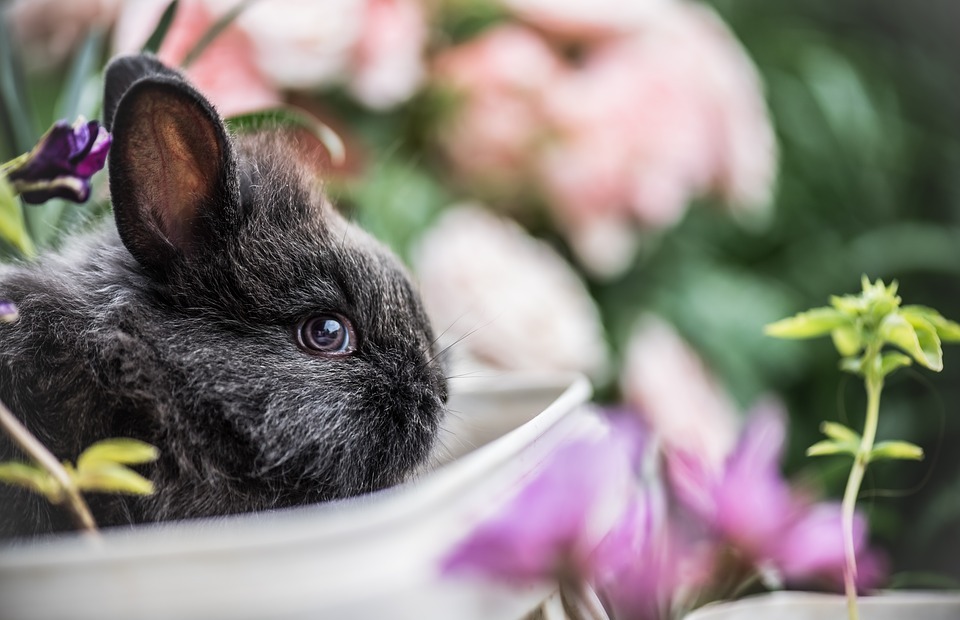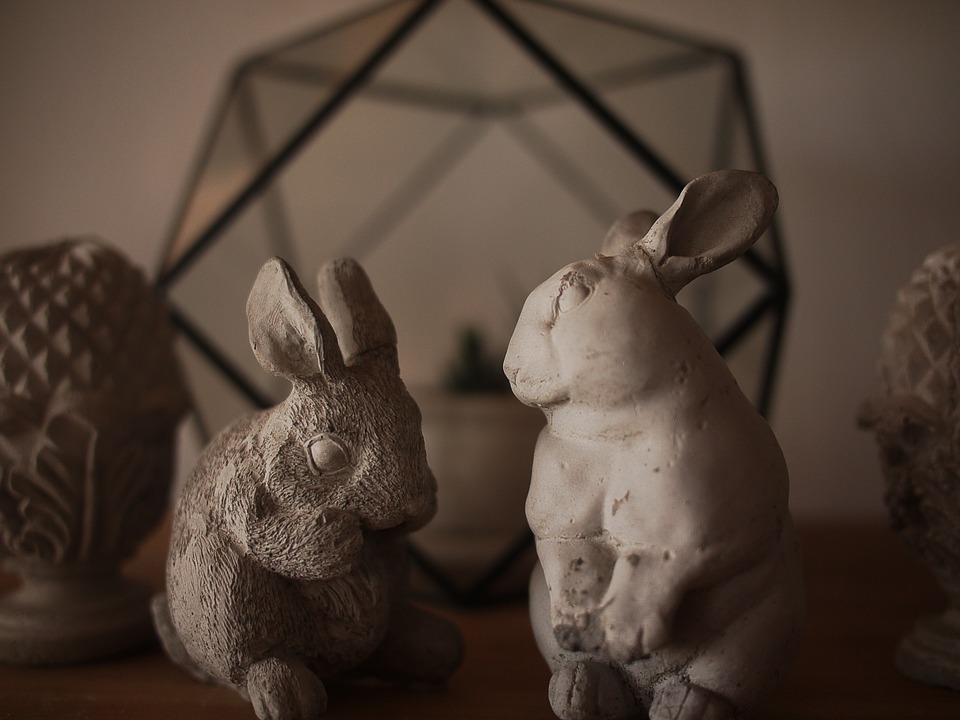This comprehensive guide explores the complex relationship between rabbits and mushrooms, providing detailed information on safe and unsafe varieties, nutritional content, potential risks, and proper feeding practices. We delve into the world of fungi, examining their diverse characteristics and highlighting the importance of accurate identification for ensuring your rabbit's safety.
Part 1: The Fascinating World of Fungi

1.1. A Kingdom of Diversity: Exploring the World of Mushrooms
Mushrooms are the fruiting bodies of fungi, organisms that play a vital role in the ecosystem. They come in a wide array of shapes, sizes, colours, and textures. While some are prized for their culinary appeal, others are highly poisonous.
1.2. Understanding the Nutritional Value of Mushrooms
Mushrooms are a rich source of essential nutrients, including vitamins, minerals, antioxidants, and fibre. These nutrients contribute to a healthy diet and can support overall well-being.
- Vitamins: B vitamins (B1, B2, B3, B5, B6, B7, B9, B12), vitamin D, and vitamin K are essential for various bodily functions.
- Minerals: Potassium, phosphorus, magnesium, calcium, copper, zinc, and selenium support bone health, nerve function, and immune system function.
- Antioxidants: Mushrooms are rich in antioxidants like ergothioneine and selenium, which help protect cells from damage caused by free radicals.
- Fibre: Mushrooms contain both soluble and insoluble fibre, which supports digestive health and promotes regular bowel movements.
Part 2: Can Rabbits Eat Mushrooms? The Risks and Benefits

2.1. The Nutritional Potential: Exploring the Benefits of Mushrooms for Rabbits
While mushrooms are a source of various nutrients, their nutritional benefits for rabbits are still under investigation. However, some potential benefits include:
- Additional Vitamins and Minerals: Mushrooms can supplement a rabbit's diet with additional vitamins and minerals, especially those that might be lacking in their regular hay and vegetables.
- Antioxidant Support: The antioxidants present in mushrooms may contribute to overall health and help protect against oxidative stress.
- Fibre Boost: Adding cooked mushrooms to a rabbit's diet can increase their fibre intake, supporting healthy digestion and bowel function.
2.2. The Dangers: Understanding the Potential Risks
While some mushrooms may offer potential benefits, they also pose significant risks to rabbits due to their unique digestive system and sensitivity to certain compounds.
- Toxicity: Many wild mushrooms contain toxins that can be highly poisonous to rabbits, causing serious illness or death.
- Digestive Upset: Even edible mushrooms can cause digestive upset in rabbits due to their high fibre content and difficult-to-digest chitinous cell walls.
- Mycotoxins: Some mushrooms contain mycotoxins, toxic substances produced by fungi that can cause various health problems in rabbits, including liver damage, kidney failure, and immune suppression.
Part 3: Identifying Safe Mushrooms for Rabbits
3.1. Cultivated Mushrooms: A Safe Option
Only a limited number of cultivated mushrooms are generally considered safe for rabbits. These are commonly found in supermarkets and have been specifically bred for human consumption.
- Button Mushrooms: These white mushrooms are a popular choice for rabbits due to their mild flavour and readily available nature. They provide a good source of protein and fibre.
- Oyster Mushrooms: With a delicate flavour and a unique texture, oyster mushrooms can be a tasty treat for rabbits, but should be given in moderation.
- Shiitake Mushrooms: Shiitake mushrooms have a strong earthy flavour and are known for their medicinal properties. They can be given to rabbits occasionally, but only in small amounts.
3.2. Avoiding Wild Mushrooms: A Crucial Safety Measure
It is crucial to avoid feeding wild mushrooms to rabbits, as many are highly poisonous.
- Unpredictable Toxicity: Wild mushrooms can contain unpredictable levels of toxins, even within the same species, making them a risky choice for rabbits.
- Misidentification: Many poisonous mushrooms resemble edible varieties, making accurate identification challenging for the untrained eye.
Part 4: Preparing and Feeding Mushrooms to Rabbits
4.1. Proper Preparation: Ensuring Safety and Digestibility
Thorough preparation is essential when offering mushrooms to rabbits:
- Thorough Cleaning: Mushrooms should be washed thoroughly under running water to remove any dirt, pesticides, or contaminants.
- Cooking: Cooking mushrooms before feeding them to rabbits helps soften their texture and makes them easier to digest. This can reduce the risk of digestive upset and potential toxicity.
4.2. Feeding Guidelines: Moderation is Key
Mushrooms should be offered as occasional treats, not as a staple food in a rabbit's diet.
- Limited Quantities: Start with small portions and observe your rabbit's reaction. Gradually increase the amount if well-tolerated.
- Variety and Balance: A balanced diet of hay, fresh vegetables, and occasional treats like cooked mushrooms is crucial for a rabbit's overall health and well-being.
Part 5: Symptoms of Mushroom Poisoning in Rabbits
5.1. Recognizing the Warning Signs: Identifying Potential Poisoning
Mushroom poisoning in rabbits can manifest in various ways, and it is crucial to recognize the warning signs to seek prompt veterinary care.
- Gastrointestinal Upset: Diarrhea, vomiting, abdominal pain, loss of appetite, and bloating are common signs of mushroom poisoning.
- Neurological Symptoms: Seizures, tremors, weakness, incoordination, and disorientation can occur due to the effects of neurotoxins.
- Liver and Kidney Damage: Mushroom toxins can damage the liver and kidneys, leading to jaundice, lethargy, increased thirst, frequent urination, and abdominal swelling.
5.2. Seeking Veterinary Care: Immediate Action for a Speedy Recovery
If you suspect your rabbit has ingested a poisonous mushroom, immediate veterinary care is crucial.
- Prompt Action: The sooner you seek veterinary help, the better the chances of recovery.
- Veterinary Diagnosis: A veterinarian can identify the type of mushroom involved and recommend appropriate treatment, which may involve supportive care, medication, or antidotes.
Part 6: Unveiling the Secrets of Toxic Mushrooms
6.1. The Most Dangerous Fungi: Understanding Common Toxic Species
Many wild mushrooms are highly poisonous to rabbits and humans. It is vital to be able to identify common toxic species to avoid accidental ingestion.
- Death Cap (Amanita phalloides): This deadly mushroom is responsible for numerous fatalities in humans and is highly toxic to rabbits. It has a distinctive white cap with a greenish tint and a white stem with a ring.
- Destroying Angel (Amanita virosa): Similar in toxicity to the Death Cap, this mushroom is also highly dangerous. It is typically white with a smooth cap and a white stem with a skirt-like ring.
- Galerina Autumnalis: This common mushroom contains amatoxins, which are highly toxic to both humans and rabbits. It has a brown cap, a brown stem, and a ring.
- False Morels (Gyromitra esculenta): These mushrooms contain gyromitrin, a toxin that can cause liver damage. They have a brain-like cap and are typically found in spring.
6.2. The Importance of Expert Identification: Seeking Professional Advice
Never feed wild mushrooms to your rabbit. If you are unsure about the identity of a mushroom, it is best to avoid it altogether.
- Consult with Experts: Consult with a qualified mycologist or mushroom expert for accurate identification.
- Avoid Guesswork: Never assume a mushroom is safe based on appearance alone. Many poisonous mushrooms resemble edible varieties, making identification tricky.
Part 7: FAQs: Mushroom Consumption by Rabbits
7.1. Can Rabbits Eat Any Kind of Mushroom?
No, rabbits cannot eat all types of mushrooms. Many wild mushrooms are poisonous and can cause serious health issues. Only certain cultivated mushrooms, such as button mushrooms, oyster mushrooms, and shiitake mushrooms, are generally considered safe for rabbits but should be given in moderation.
7.2. Are Dried Mushrooms Safe for Rabbits?
Dried mushrooms are not recommended for rabbits due to their high sodium content and the potential for mycotoxin contamination during the drying process. While they are a concentrated source of nutrients, the risks outweigh the benefits.
7.3. Can Rabbits Eat Mushroom Stems?
Yes, rabbits can eat mushroom stems, but they should be cooked and offered in moderation.
7.4. Can Rabbits Eat Raw Mushrooms?
It is not recommended to feed raw mushrooms to rabbits. Cooking them helps soften their texture and makes them easier to digest, reducing the risk of digestive upset.
7.5. What If My Rabbit Eats a Wild Mushroom?
If you suspect your rabbit has ingested a wild mushroom, contact your veterinarian immediately. Time is of the essence in treating mushroom poisoning.
7.6. Are There Any Alternatives to Mushrooms?
Yes, there are many other safe and nutritious treats you can offer your rabbit, such as:
- Fresh Vegetables: Carrot tops, parsley, cilantro, and spinach are good options.
- Fruits: Small amounts of apple slices, banana, and berries can be given as occasional treats.
- Hay: Timothy hay should form the majority of your rabbit's diet.
7.7. What Should I Do If My Rabbit Has an Allergic Reaction to Mushrooms?
If you notice any signs of an allergic reaction, such as sneezing, itching, or difficulty breathing, stop feeding mushrooms immediately. Consult your veterinarian for guidance on managing the allergic reaction.
Everyone is watching
-

Do Rabbits Lay Eggs? (The Surprising Truth)
OTHER TYPES OF PETSThis article will unravel the common misconception that rabbits lay eggs, exploring the fascinating world of r...
-

What's a Group of Rabbits Called? (A Comprehensive Guide)
OTHER TYPES OF PETSThis article delves into the fascinating world of rabbits, exploring the various terms used to describe a grou...
-

Can Rabbits Eat Grapes? A Guide to Safe Rabbit Treats
OTHER TYPES OF PETSThis comprehensive guide will explore the safety and suitability of grapes for rabbits, providing detailed inf...
-

Predators That Hunt Rabbits: A Guide to Natural Enemies
OTHER TYPES OF PETSI've always been fascinated by the circle of life, that delicate dance between predator and prey. Growing up ...
-

Are Rabbits Nocturnal Animals?
OTHER TYPES OF PETSThe question of whether rabbits are nocturnal animals is a fascinating one, with a surprisingly complex answer...
